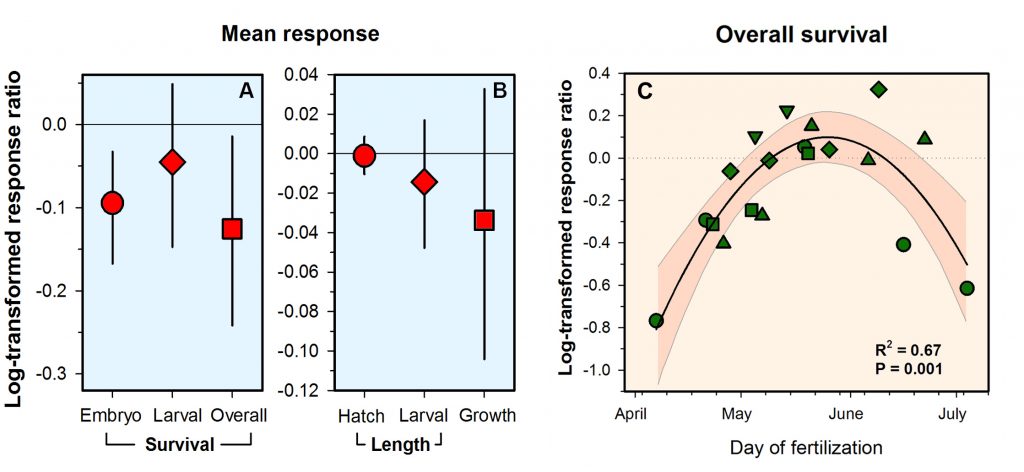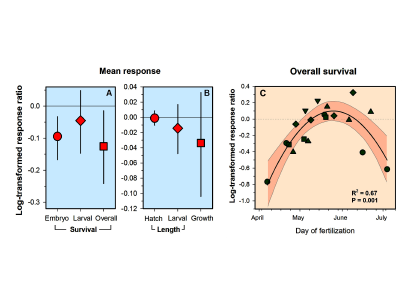To detect potential effects of acidification on marine organisms, experimenters most commonly use within-experiment replication, but repeating the experiments themselves is rarely done. While the first approach suffices to detect major CO2 effects, other potentially important responses may get detected and robustly quantified only via serial experimentation. A study by Baumann et al. in Biology Letters comprises a meta-analysis of 20 standard CO2 exposure experiments conducted over six years on Atlantic silverside (Menidia menidia) offspring.

Figure 1: Robust estimate of silverside CO2 sensitivity based on serial experimentation. (A, B) Mean CO2 effect size calculated as the log-transformed response ratio of six early life history traits measured at 20 standard experiments between 2012-2017 (Error: bootstrapped 95% confidence intervals). (C) Seasonal change in CO2 sensitivity in silverside early life stages. Each symbol represents an individual experiment, using offspring obtained by fertilizing wild spawners throughout their spring/summer spawning season.
Silversides are an abundant and ecologically important forage fish in the North Atlantic. The study revealed that during early life stages, Atlantic silversides tolerate pCO2 levels up to ~2,000 µatm, with seasonal shifts in sensitivity. However, this early exposure to high pCO2 levels reduces embryo survival by 9% and overall survival by 13% (Figure 1). Future ocean acidification could cause reduced survival of these and other forage fish, and thus impact their diverse marine predators, including seabirds and commercially important fish species. This sustained experimental work resulted in the most robustly constrained estimates of average CO2 effect sizes for a marine organism to date, demonstrating the utility of serial experimentation as a powerful tool for assessing organism responses to changing CO2.
Authors:
Hannes Baumann
Emma L. Cross
Chris S. Murray
(all University of Connecticut)




